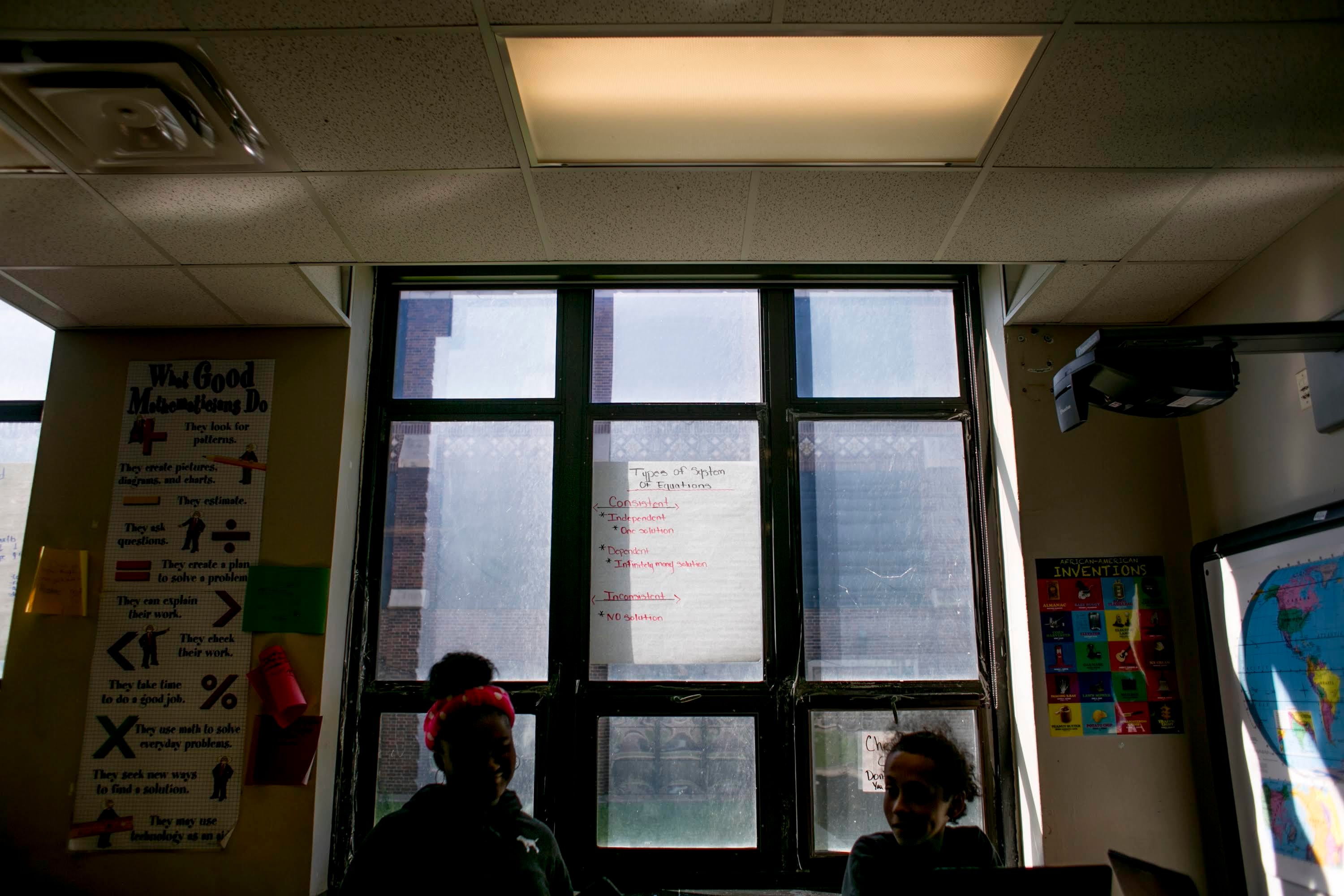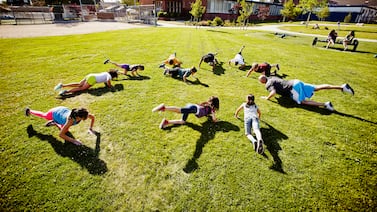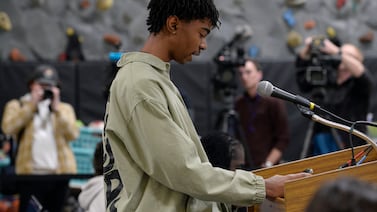Sign up for Chalkbeat Detroit’s free daily newsletter to keep up with the city’s public school system and Michigan education policy.
More than a thousand students have signed up for a new tutoring program in the Detroit school district that will pay the teens $2,000 for attending.
Chalkbeat reported on the program in August as the district was finalizing details. The financial incentive is intended to make staying after school for literacy tutoring attractive to students, particularly those who need to work after school to earn money.
When the program was announced earlier in the school year, 3,000 students expressed interest, but Superintendent Nikolai Vitti said the number “has declined once we sent out the actual schedule and made it clear that students had to attend all of the sessions.”
On Monday morning, Vitti said 900 officially signed up for the tutoring session that begins Nov. 11 and runs for 11 weeks. Another 165 signed up for the session that begins in January. Students can only attend one of the sessions.
Vitti said he is not surprised by the level of interest.
“I know we need to think differently about financial incentives,” Vitti said. “I have been stating this for some time now but did not have the flexibility with our funding to do it.”
Every DPSCD high school will offer the tutoring. At locations with more demand than available slots, preference will be given to students with lower literacy scores on the PSAT and SAT.
The program launches at a time when the district is working to improve literacy levels. As of spring 2024, 53.9% of district eighth graders read two or more grades below reading level.
Here are some key details:
There are strict rules about attendance for the tutoring
Tutoring will take place Monday through Thursday for 11 weeks, with a couple of exceptions related to holidays. It begins Nov. 11 and runs through Feb. 11. A second cycle of the tutoring runs from Jan. 6-April 3.
Students must attend all sessions, and they must be present for the regular school day. They’ll receive $1,000 after the first 20 sessions are completed and another $1,000 after the final 20 sessions are completed.
If a student misses a day, they’ll be removed from the program.
What if a student gets sick or has an emergency?
“Perhaps we can work on one day make-up sessions, but with this being a paid and voluntary opportunity, we need to have higher standards,” Vitti said. “In addition, to gain the benefit of the tutoring, students need to attend all of the sessions or the intervention will not work, which negates the reason to offer it. Lastly, we have a tight timeline to simply offer what we are offering with the number of sessions that is required. We don’t have a lot of time for make-up sessions.”
Tutors will be familiar faces
Students will receive assistance from trained teachers as well as academic interventionists, who have become a key part of the district’s academic improvement efforts, Vitti said.
“You need extensive training to offer the tutoring,” Vitti said.
Measuring success will be key
The district intends to monitor the success of the program and may expand it beyond this school year, “depending on how the year goes,” Vitti said.
The district will look to see if the program improves school attendance, grades, and the results of tests such as the SAT and end-of-course exams.
Lori Higgins is the bureau chief for Chalkbeat Detroit. You can reach her at lhiggins@chalkbeat.org.





